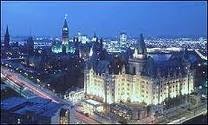I'm late!! I'm late!! My apologies for the tardiness of this post. It seems that I e-slept in.
When I was eight years old, my dad was posted to Winnipeg. That meant we were moving, again. We had spent two years in Aylmer, and I had made a lot of friends. But being a military brat, I was used to being uprooted.
What I didn't expect was that my parents would decide to give away our cat, Herman. To the Humane Society. In 1977, it was only too common: the drive across the country was long, and public censure hadn't really formed against the practice of abandoning a pet. I'm sure my parents thought they were doing the right thing. However, regardless of hindsight and recognizing that it was a difficult thing for them to do, it was one of the most heartbreaking experiences of my childhood.
To this day, I can close my eyes and I am a child again in the wood-paneled Toyota station wagon, crying and begging, as we dropped my best little buddy off to an uncertain future. My dad, grim-faced and unyielding in the front seat. My mom trying, and failing, to comfort me. My dusty little black Persian cat in my arms, struggling and clueless to his situation. I would never see him again. The song that played on the radio, one I'd never heard before, one I could never forget and that has stayed associated with loss.
The song? The Hustle.
Yes, The Hustle. Famous disco song (Van McCoy and the Soul City Symphony). People dance to it. It's a happy song. Full of bright flutey sounds and a aural backdrop of singers going "oooo..."
So, why am I telling you this? Because that the sort of contrast I want to put into my writing.
There are many common and related techniques (irony, oxymoron, contrast, juxtaposition) to this kind of unexpected pairing. Wiki any one of them, and you will find countless examples and explanations.
It is this contradictory combination that can elevate a scene, or a whole novel, to a riveting read.
This can be a visual, sensory or even temporal juxtaposition. Its use may range from a discordant note in a small scene, designed to slightly discomfort the reader (and believe me, they don't always know what's bothering them, and if it's done right, all they know is they have to keep reading, because something's going to happen, they just know it) all the way up to something as all-encompassing as a predestination paradox, where everything in the story leads inexorably to a conclusion the main character wants most to avoid.
From the visual:
Pink balloons slowly drifting over a scene of carnage.
To the sensory:
The smell of cotton candy mixed with blood.
The tinkling of the calliope (circus music), which continues to play after a fatal gunshot, because no one is left to turn it off.
To character:
Killer clown.
To theme or plot:
A hero or heroine who is deathly afraid of/enamoured of something, only to be saved/done in by that very thing. That's the predestination paradox. (Think Oedipus Rex.)
Tell us some of your favourite ways to introduce tension using justaposition or other techniques!





